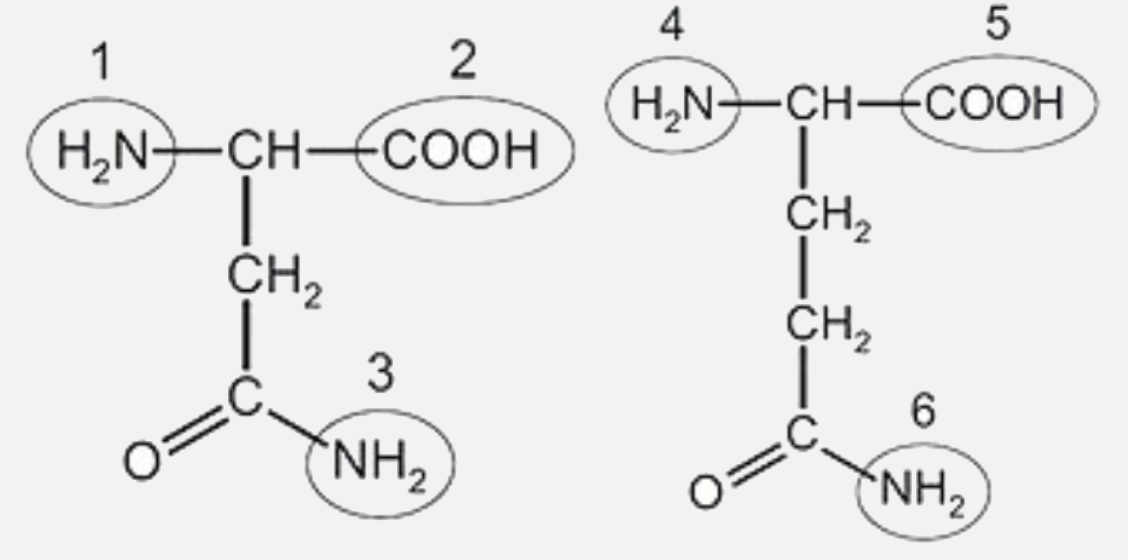During chain elongation, peptide bond is formed between carboxyl group of first and amino group of second amino acid by
Peptidyl transferase
Taq polymerase
DNA ligase
Helicase
The correct Answer is:A
Step-by-Step Solution:
1. Understanding the Question:
The question asks about the formation of a peptide bond during chain elongation in protein synthesis. Specifically, it inquires which enzyme facilitates this process between the carboxyl group of the first amino acid and the amino group of the second amino acid.
2. Identifying the Enzymes:
The options provided are:
- Peptidyl transferase
- Taq polymerase
- DNA ligase
- Helicase
3. Analyzing Each Option:
- Peptidyl Transferase: This enzyme is responsible for catalyzing the formation of peptide bonds during the translation phase of protein synthesis. It facilitates the reaction between the carboxyl group of one amino acid and the amino group of another, leading to the elongation of the polypeptide chain.
- Taq Polymerase: This enzyme is a DNA polymerase used in PCR (Polymerase Chain Reaction) to amplify DNA sequences. It does not play a role in peptide bond formation.
- DNA Ligase: This enzyme is involved in joining DNA strands together by forming phosphodiester bonds. It is not involved in protein synthesis or peptide bond formation.
- Helicase: This enzyme unwinds the double-stranded DNA during replication, allowing each strand to be copied. It does not participate in peptide bond formation.
4. Conclusion:
Based on the analysis, the correct enzyme responsible for forming the peptide bond during chain elongation is Peptidyl Transferase.
Final Answer: Peptidyl Transferase
---
The question asks about the formation of a peptide bond during chain elongation in protein synthesis. Specifically, it inquires which enzyme facilitates this process between the carboxyl group of the first amino acid and the amino group of the second amino acid.
The options provided are:
- Peptidyl transferase
- Taq polymerase
- DNA ligase
- Helicase
- Peptidyl Transferase: This enzyme is responsible for catalyzing the formation of peptide bonds during the translation phase of protein synthesis. It facilitates the reaction between the carboxyl group of one amino acid and the amino group of another, leading to the elongation of the polypeptide chain.
- Taq Polymerase: This enzyme is a DNA polymerase used in PCR (Polymerase Chain Reaction) to amplify DNA sequences. It does not play a role in peptide bond formation.
- DNA Ligase: This enzyme is involved in joining DNA strands together by forming phosphodiester bonds. It is not involved in protein synthesis or peptide bond formation.
- Helicase: This enzyme unwinds the double-stranded DNA during replication, allowing each strand to be copied. It does not participate in peptide bond formation.
Based on the analysis, the correct enzyme responsible for forming the peptide bond during chain elongation is Peptidyl Transferase.
Topper's Solved these Questions
- MOLECULAR BASIS OF INHERITANCEBOOK - ICSECHAPTER - MOLECULAR BASIS OF INHERITANCEEXERCISE - OBJECTIVE TYPE QUESTIONS (ASSERTION AND REASON TYPE QUESTION )
24 Videos
- MOLECULAR BASIS OF INHERITANCEBOOK - ICSECHAPTER - MOLECULAR BASIS OF INHERITANCEEXERCISE - MCQ
42 Videos
- MOLECULAR BASIS OF INHERITANCEBOOK - ICSECHAPTER - MOLECULAR BASIS OF INHERITANCEEXERCISE - REVIEW QUESTIONS
11 Videos
- MICROBES IN HUMAN WELFAREBOOK - ICSECHAPTER - MICROBES IN HUMAN WELFAREEXERCISE - COMPETITION CORNER (OBJECTIVE TYPE QUESTIONS (ASSERTION AND REASON TYPE QUESTIONS))
15 Videos
- ORGANISMS AND POPULATIONSBOOK - ICSECHAPTER - ORGANISMS AND POPULATIONSEXERCISE - COMPETITION CORNER (ASSERTION AND REASON TYPE QUESTIONS)
22 Videos
Similar Questions
Peptide bonds are formed between which group of amino acids?
View SolutionRead the following statements ,(a). A péptide bond is formed between COOH group of 1st amino acid and NH, group of 2nd amino acid. Br (b)-Ribosome is the cellular factory responsible for synthesising proteins. Br (c) -Activation of amino acids accurs in the presence of ATP.Which of the given statements are correct wrl. translation?
View Solution
Knowledge Check
A peptide bond is formed when NH2 group combines with
ACOOH groupBhydrogen groupCCH2 groupDanother NH2 group
Peptide bond is formed between two amino acids through
View SolutionIn α− helix secondary structure, hydrogen bonds lie between oxygen of carboxylic group of first amino acid to the -NH group of the
View SolutionThe functional group which found in amino acid is
View SolutionThe urea is formed from an amino acid
View SolutionThe functional group which is found in amino acid is:
View SolutionThe diagrams show the structures of two amino acids, each of which has two amine (−NH2) Group .

A peptide bond is formed between the two amino acids. Which groups could from the peptide bond ?
View SolutionCarboxylic acids containing an amino group (−NH2) as a substituent are called amino acids. When this amino group substitution is at α position with respect to carboxylic group, the aminoacid is called α-amino acid. The aminoacids with two carboxylic acids are called acidic amino acids whereas aminoacids with two amino group are called basic amino acids Amino acids show amphoteric character. Ali chiral natural amino acids exist in L-form. :
Each of the following represent natural alanine (an amino acid) except
View Solution
